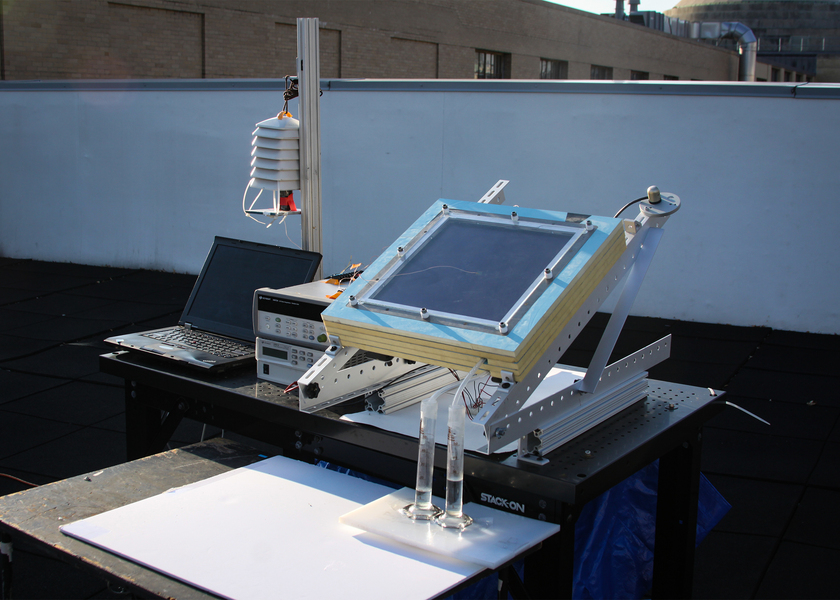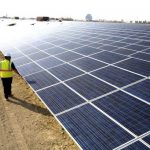A team of researchers at the Massachusetts Institute of Technology in the United States has created a new technology to extract potable water directly from the air in dry areas by means of solar energy generation systems, depending on the heat, whether from the sun or from any other source.
The new technology relies on a material with the ability to absorb moisture from the air called “zeolite”, which is made from a chemical compound called iron aluminum phosphate. This material is widely available, and can be used to extract water from the air at normal temperatures and under sunlight.
The idea of the new system also depends on extracting water from the air through two stages, where in the first stage the heat resulting from the generation of solar energy is collected by special panels, and it is used to heat the zeolite material, which leads to the condensation of the moisture absorbed by this substance from the air. Case Collecting water droplets that have been condensed on specific surfaces through the second stage, then transporting them in tubes to collection tanks.
The study team emphasized that the new system can work at humidity rates not exceeding 20%, and does not require any external energy sources except for solar energy or any alternative source that leads to the generation of limited amounts of heat.
As for the volume of water production, it is 0.8 liters per square meter, and it is possible to raise this rate by improving the efficiency of the system or using other materials with higher capacities to absorb water.
















